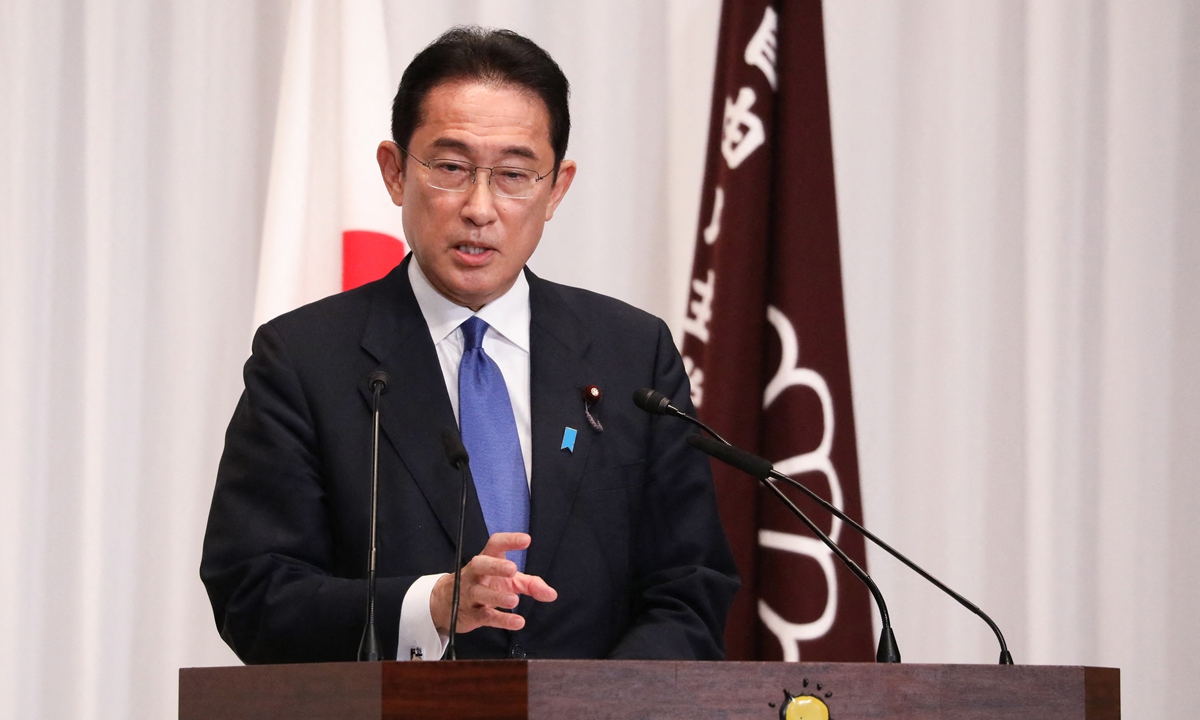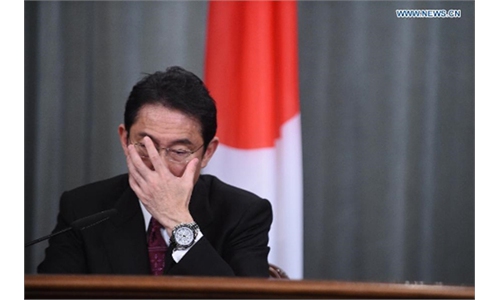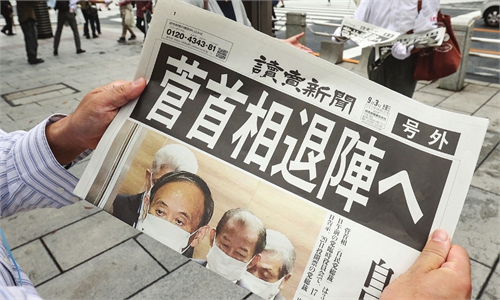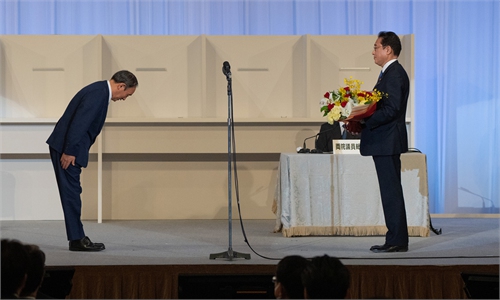It is hoped Kishida won’t push China-Japan relations toward hostility: Global Times editorial

Photo: Fumio Kishida, former foreign minister, speaks during a press conference after being elected as the new leader of the ruling Liberal Democratic Party (LDP), at the LDP headquarters in Tokyo on Wednesday. Photo: AFP
Japan's former foreign minister Fumio Kishida on Wednesday won the ruling Liberal Democratic Party (LDP)'s presidential election. There is little doubt that he will become Japan's next prime minister. During the election campaign, several candidates talked a lot about China, launching the most intense wave of hard-line rhetoric against China in Japanese politics in recent years. Kishida, often seen as a dove, also made tough remarks on the most sensitive issues such as upgrading Japan's missile defense capabilities, including the capacity to attack enemy bases, as well as the changing situation across the Taiwan Straits.
The concentration of China issues in this LDP presidential election has been unprecedented, underscoring an atmosphere of "inevitable" hostility between China and Japan, "imminent" conflicts and a showdown. It is just like an anti-China propaganda campaign. The China-Japan relations it displays are much more severe than the reality. Such a situation does not only proactively interact with anti-China public opinion in Japan, but also plays a role in further leading opinions. These may further kidnap China-Japan relations in the future.
Former Japanese internal affairs minister Sanae Takaichi, another candidate who is a far-right figure and who all but described China as an enemy, won 188 votes in the first round of voting, some 60 votes less than Kishida. This is particularly symbolic.
The so-called democratic elections in particular contribute to the emergence and fermentation of radical nationalism. The LDP presidential election in Japan this time is a prominent example. With lower house elections coming up too, this exaggerated hard-line public opinion against China may continue.
However, regarding a rapidly rising China as an enemy, such fanaticism and recklessness are destined to be a grave strategic misunderstanding in Japan, with potentially disastrous consequences. It is hoped that after assuming the LDP presidency, Kishida will play his due role as a political leader to ease Japan's increasing anti-China sentiment, instead of further promoting a line of tough competition against China. He should be aware that maintaining a prudent China policy is in line with Japan's national interests.
Japan should not shape itself as China's enemy under any circumstances. To this end, the following is crucial for Japan.
First, Japan should not return to the road of militarism. Japan has been eager to amend its pacifist constitution in recent years. The amendment is obviously aimed at its neighboring countries, especially China. This will trigger great vigilance among neighboring countries and produce a chain reaction. Japan seeks to revise the post-war constitution to further legitimize the Self-Defense Forces (SDF), possess nuclear-powered submarines, and build long-range strike capabilities. If these are put into practice, it will definitely increase the tension and even hostility between Japan and the entire surrounding region.
Second, Japan cannot participate in any multilateral military alliance that clearly targets China. If the Quad mechanism that Japan has already joined is transformed into a military alliance, the effect will be the same. They will all strongly ramp up the hostility between China and Japan.
Third, Japan's SDF should not blatantly provoke China like the US military. Under no circumstances should they trigger military frictions between China and Japan.
Fourth, Tokyo needs to be particularly cautious in terms of the Taiwan question. If Japan stirs up the muddy waters of the Taiwan Straits, it is very likely to trigger a new war with China.
Fifth, in regard to old issues including visits to the Yasukuni Shrine, textbooks and the Diaoyu Islands, Japan has to ramp up efforts to control its differences with China, and it should not easily exploit any of them as a card. In particular, it should not engage in new moves to break Japan's prior practices.
Sixth, in the tech war against China waged by the US, Japan should not coordinate with the US to establish a supply chain excluding China in a bid to undermine China's economic future. This would be a prominent sign that Tokyo sees Beijing as an enemy.
Japan is a close neighbor of China, and its development was once far ahead of China. Japan had not only showed its disdain for China but had also invaded and hurt China. In the face of the new reality that China's GDP is three times that of Japan's, the latter's society has not psychologically adapted to the situation, and even has some fear. However, turning to the US and being a "pioneer" in helping it contain China is a deadly strategy for Japan. We believe that even if some Japanese hope to follow this path, it cannot really become Japan's national policy.
It is hoped that no matter what rhetoric he made during the LDP presidential election campaign, Kishida is clearly aware and also has the willingness and capability to prevent Japan's China policy from straying too far off course. He should not be the leader who ignites new fires of hatred between China and Japan, nor the one who pushes China and Japan into an all-out confrontation.



